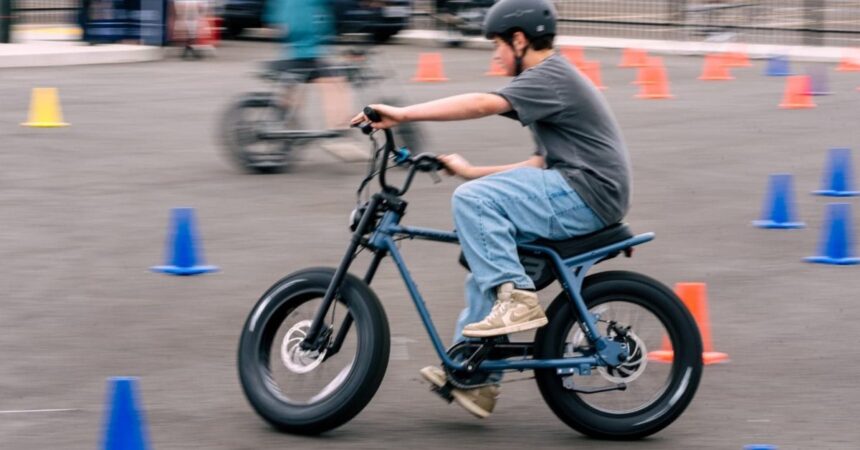Electrical bikes have surged in popularity, bringing significant attention to e-bike safety concerns. In Huntington Beach, California, the rise of accidents involving young riders has prompted a unique solution from local authorities.
The Huntington Beach Police Department (HBPD) recently launched what may be California’s first police-administered e-bike safety course specifically for teenagers at Spring View Middle School. This initiative underscores a proactive approach to addressing an escalating issue and could serve as a model program for other communities facing similar challenges with micromobility.
E-bikes are rapidly transforming urban transportation, offering speed, cost-effectiveness, and environmental benefits that appeal particularly well to younger demographics. Increasingly, individuals are choosing e-bike mobility over traditional vehicles like cars or motorcycles, often delaying the pursuit of a driver’s license entirely.
However, this shift introduces distinct safety challenges for novice riders. Data shows a dramatic increase in e-bike accidents locally; Huntington Beach reported 147 incidents in 2024, more than double the previous two-year total. Police Chief Eric Parra highlighted these dangers during an interview regarding the new course: “You can tell them how to act and how to behave,” he noted, emphasizing that experiential learning is crucial for effective safety understanding.
Emergency room professionals are echoing this concern. Staff at Children’s Hospital of Orange County reported treating injuries from e-bike accidents as severe as those sustained in car crashes—including fractures, concussions, and shattered kneecaps—especially among youth riding without helmets.
The HBPD’s course aims to bridge the gap between theoretical knowledge and practical application through direct experience. Instructors Sgt. Mike Thomas and others guide participants through hands-on drills on a cone-studded course using their own electric bikes. The program progressively increases exercise intensity by requiring repetition at faster speeds, helping riders understand how velocity impacts reaction time and bike handling.
Teenagers navigate the training course on their personal electric bicycles. Images from the event showcase various models of Super73 e-bikes used during sessions, including one provided free to be given away as part of this week’s program—a detail that highlights the company’s role in these incidents despite its separate PedalAce rider education initiative.
Parents were required to attend alongside their children, ensuring a collaborative dialogue about safety risks and real-world riding conditions. Early feedback suggests positive outcomes for participants; district officials are reportedly considering making this program mandatory for students using e-bikes to reach or travel from high school.
Further free sessions have been planned, with three more classes scheduled soon.
This initiative represents an important step toward comprehensive e-bike safety education that complements regulatory efforts and infrastructure development.











